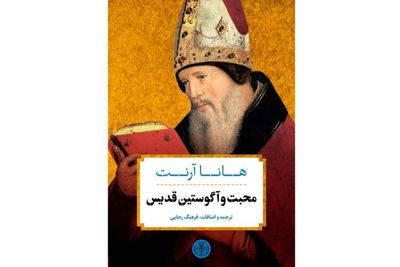The book has been rendered into Persian by Farhang Rajaee, an Iranian professor of political science and humanities at Carleton University in Canada.
A Persian translation of the book by Maryam Khodadadi has previously been published by the Bidgol publishing house.
Arendt began her scholarly career with an exploration of Saint Augustine’s concept of caritas, or neighborly love, written under the direction of Karl Jaspers and the influence of Martin Heidegger.
After her German academic life came to a halt in 1933, Arendt carried her dissertation into exile in France, and years later took the same battered and stained copy to New York.
During the late 1950s and early 1960s, as she was completing or reworking her most influential studies of political life, Arendt was simultaneously annotating and revising her dissertation on Augustine, amplifying its argument with terms and concepts she was using in her political works of the same period.
The dissertation became a bridge over which Arendt traveled back and forth between 1929 Heidelberg and 1960s New York, carrying with her Augustine’s question about the possibility of social life in an age of rapid political and moral change.
Arendt was one of the most influential political philosophers of the twentieth century. Born into a German-Jewish family, she was forced to leave Germany in 1933 and lived in Paris for the next eight years, working for a number of Jewish refugee organizations.
Several of her books, including “Eichmann in Jerusalem: A Report on the Banality of Evil” and “The Origins of Totalitarianism”, have been published in Persian.
Source:Tehran Times

